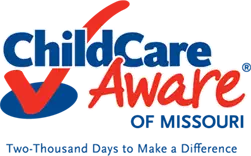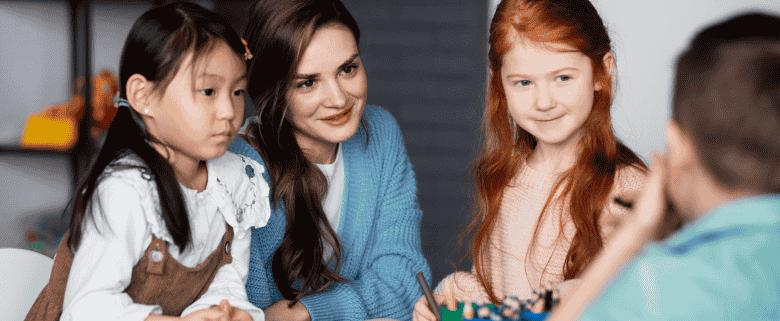How Childcare Programs Can Prepare Kids for a Digital Future
A preschooler asking Alexa for a bedtime story or a kindergartner playing math games on a tablet, these are everyday moments in 2025. The term iPad kids may sound playful, but it reflects how deeply screens, tablets, and smartphones are woven into your child’s daily routine.
According to the OECD, in 2025, more than 96% of 15-year-olds in developed and upper-middle-income countries have access to a computer or tablet, and 70% of 10-year-olds already own a smartphone. But access alone isn’t enough, many children still need guidance to use technology safely, responsibly, and creatively. Childcare centers are perfectly positioned to provide that guidance, combining structured learning with play to help children build essential digital skills.
In this blog, we’ll explore the ways childcare programs support children in becoming confident, thoughtful, and capable digital learners.
How Childcare Programs Shape Digital Skills
Childcare programs do more than just introduce children to screens; they provide structured environments where technology is used with purpose and intention. Guided digital experiences, combined with play-based learning, show children that screens are just one of many ways to explore and learn.
Here are some practical ways how childcare centers prepare kids for a digital future:
-
Age-Appropriate Technology
Childcare programs carefully select tablets, learning apps, and interactive games that fit each child’s age and abilities. In this safe and guided environment, kids don’t just play, they build early STEM skills naturally through fun activities.
-
Creativity and Problem-Solving
Through activities like digital storytelling, simple coding games, and interactive puzzles, children get to stretch their imagination while learning to think logically, where learning feels like play rather than formal instruction.
-
Digital Safety and Responsibility
Early lessons on online safety and respectful digital behavior help children understand the rules of technology. By learning simple guidelines for using devices responsibly, kids develop habits that keep them safe and confident as they explore digital tools.
-
Balance Between Digital and Hands-On Play
Screen time is always balanced with hands-on experiences, building blocks, art, music, and outdoor play. This mix strengthens social skills, coordination, and creativity, showing children that technology is just one of many ways to have fun.
-
Equity and Access
Not all children have devices or guided tech learning at home. Childcare programs make sure every child gets a chance to engage with technology, helping bridge gaps and giving all children an equal opportunity to build essential digital skills early.
Tips for Parents to Support Digital Learning at Home
Even with strong guidance at childcare centers, children thrive when parents reinforce digital skills at home. Small, consistent practices can make a big difference in helping kids become confident, responsible digital learners.
Set Purposeful Screen Time
Rather than letting devices become purely entertainment, guide your child toward educational apps or games that spark creativity, problem-solving, and curiosity. When screen time has a purpose, children learn to engage thoughtfully with technology.
Mix Technology with Hands-On Play
Balance is key. Encourage activities like building blocks, arts and crafts, music, or outdoor play alongside screen use. This helps children see that learning happens in many ways and strengthens their social, motor, and creative skills.
Model Responsible Technology Use
Children learn by watching adults. Show them how to take screen breaks, use technology thoughtfully, and communicate respectfully online. Your habits set a powerful example that children are likely to follow.
Talk About Online Safety
Even simple conversations about privacy, safe browsing, and respectful online behavior go a long way. Introducing these concepts early helps children build digital awareness and confidence as they navigate technology.
Encourage Creativity and Exploration
Invite your child to create digital stories, design simple games, or explore learning apps together. Celebrate their curiosity and experimentation, not just the end results, and make technology feel like a tool for exploration and learning.
By weaving these practices into daily life, parents complement the structured guidance children receive at childcare centers, helping them build a well-rounded foundation for a digital world.
The Long-Term Benefits of Early Digital Literacy
You might wonder, “What will my child actually gain from early digital learning?” The answer is encouraging. Children exposed to technology in a guided, purposeful way often adapt more easily to new challenges.
You may also ask, “Will technology affect their social skills?” When balanced with collaborative play and hands-on activities, it can actually support social development, helping your child learn to share ideas, work with others, and navigate both digital and real-world interactions.
All of these skills also lay a strong foundation for school and beyond. A child who learns to use technology thoughtfully and responsibly is better prepared for classrooms and learning environments where digital tools are part of everyday life.
Conclusion: Preparing Your Child for the Future
Early exposure to digital learning nurtures curiosity, resilience, and a willingness to embrace challenges, skills that extend far beyond screens.
For parents in Missouri, At Child Care Aware Of Missouri , we know that technology is part of everyday life and help you find childcare centers that are not only safe and nurturing but also committed to teaching children how to use technology responsibly and creatively.
Together, let’s give your child a strong foundation to excel in school, future learning opportunities, and an increasingly digital world.




